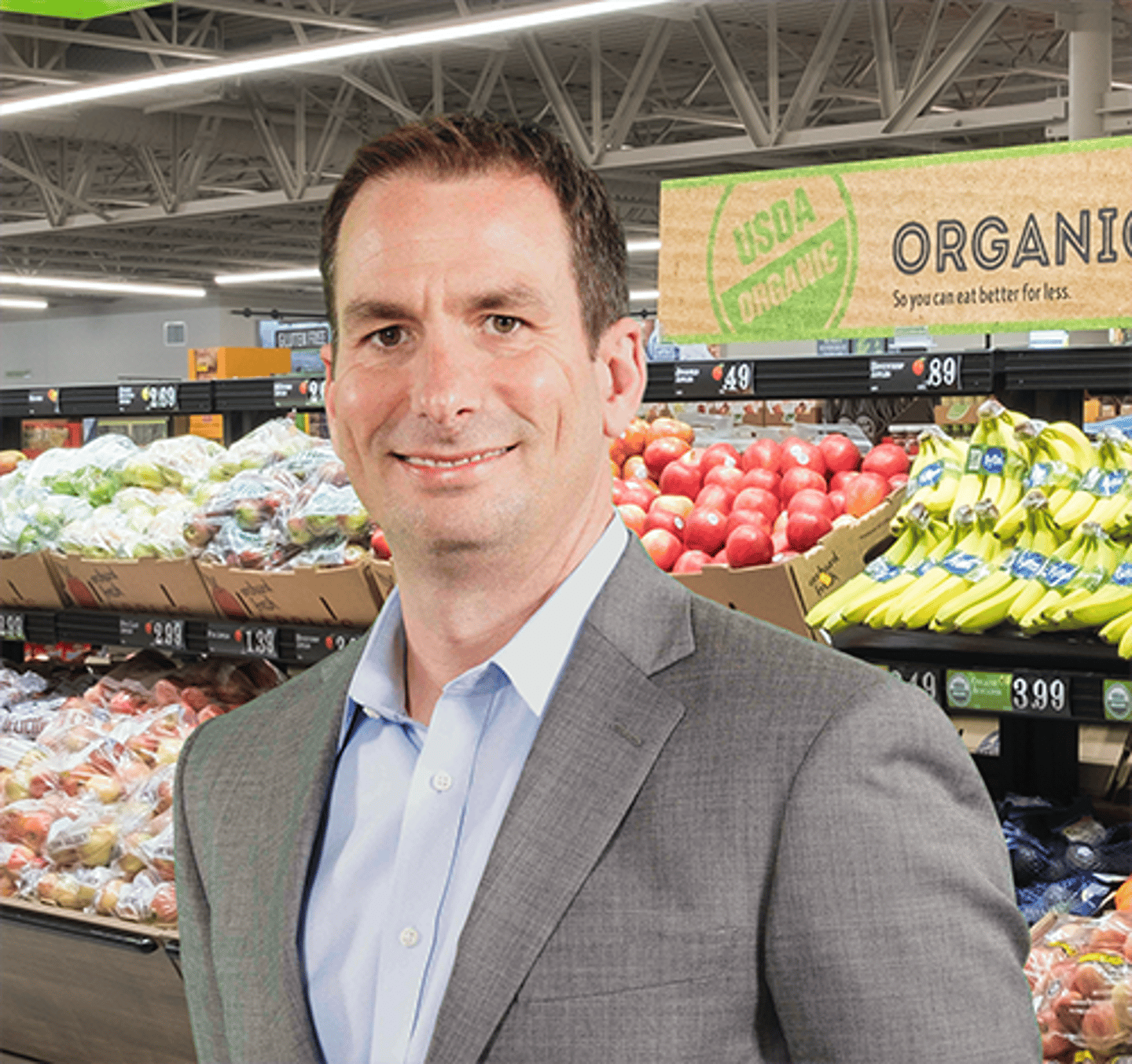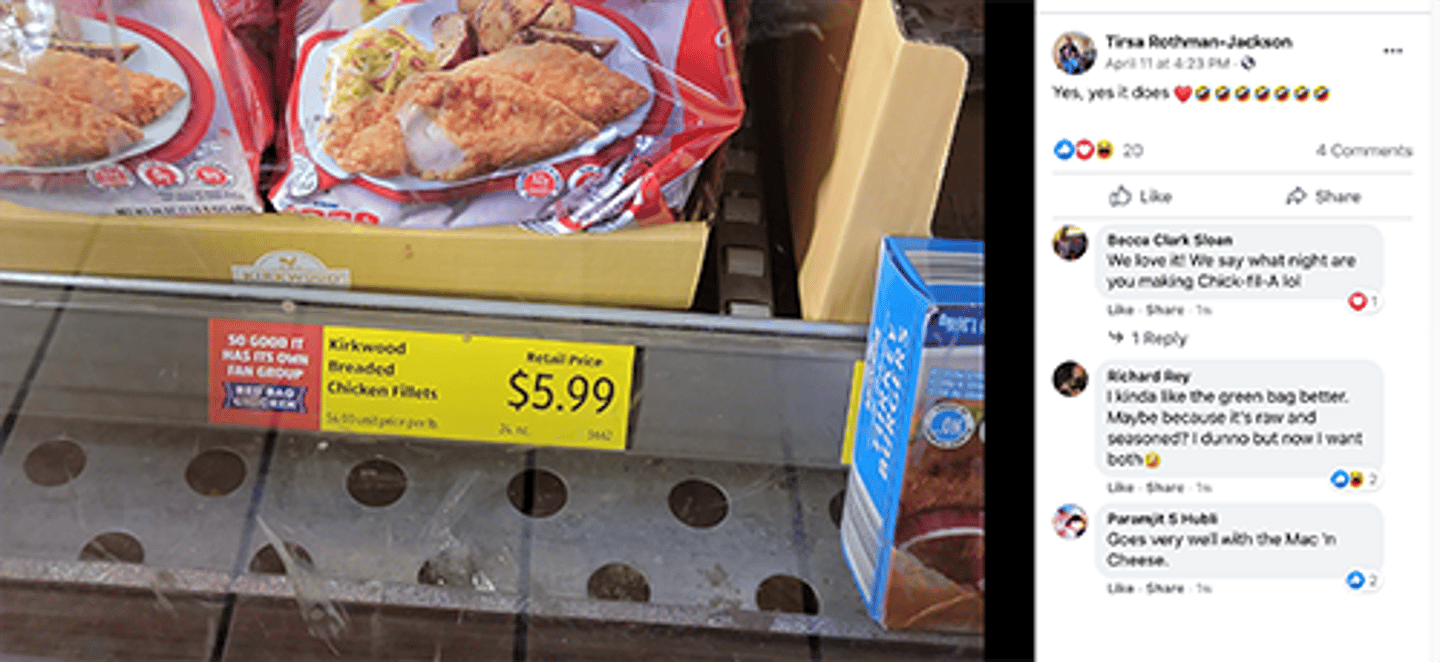Profile: Aldi’s Next Phase
A lot can happen in two years. At Aldi U.S., in that timespan, the retailer has added more than 200 stores, with another 100 on the way this year, and has set a goal to hit 2,500 stores by the end of next year.
Then, we can talk about its remarkable online activities.
Consider the fact that two years ago, the Batavia, Ill.-based retailer did not have curbside pickup and had just begun a delivery service with Instacart. It now has curbside pickup running at around half of its locations and delivery is available at nearly all of its stores. It was also the first retailer to accept EBT SNAP as a payment option through Instacart.
Obviously, the COVID-19 pandemic accelerated Aldi’s e-commerce expansion — as it did across retail — but this digital embrace also is a key factor in what can be considered the next evolution of Aldi.
“To add some context, in response to changing customer needs during the pandemic, we added roughly 1,000 curbside grocery pickup locations in a little more than a year,” said Brent Laubaugh, co-president of Aldi U.S., in an exclusive interview with Store Brands. “We’ve learned that now, more than ever, people want options for how they shop and we’re proud to be able to offer those choices. The demand for e-commerce continues to be strong, so it’s a critical part of our business that we’ll continue to invest in.”
He added, “The last several years have been very transformative for Aldi. We’ve invested more than $5 billion in a multi-year, nationwide growth initiative and have opened more than 500 stores in the last five years.”
Grocery industry analyst Phil Lempert, better known as The Supermarket Guru, went one step further when asked about Aldi. He said executives told him that e-commerce and curbside pickup is enabling Aldi to attract shoppers that have never been to an Aldi.
“They’re smart. They’re constantly evolving and trying to get new products there and new shoppers into the store,” he said.
The Rise of Aldi
Laubaugh credited the loyalty of its shoppers for the retailer’s rapid growth. “It’s their commitment and enthusiasm that continues to propel us forward,” he said, pointing out the “grass-roots enthusiasm” found on social media.
It’s true, a search on Instagram brings up more than 50 influencers dedicated to the retailer with handles like All I Need is Aldi, Aldi for President, Aldi Nerd, Aldi All the Time and many more. The accounts share regional perspectives, such as The Aldi Nerd, based in Florida, who just posted about Aldi’s rain boots and Pineapple Mimosa product. All I Need is Aldi focused on recipes, cooking and product reviews from her area stores.
Laubaugh said the influencers take to social media to highlight Aldi Finds, the weekly drops from the retailer, and personally noted the Facebook fan group Aldi Red Bag Chicken, which has nearly 20,000 followers solely dedicated to sharing recipes and photos of how home cooks innovate with the retailer’s Kirkwood Breaded Chicken Fillets.
Aldi has even placed shelf tags near the product in stores proclaiming: “Red Bag Chicken. So Good It Has Its Own Fan Group.”
“The sales for those already popular fillets increased exponentially after we shared our own fast-food chicken sandwich dupe made from Aldi ingredients amid the chicken sandwich craze,” Laubaugh noted. “Their passion and buzz have helped make us one of the fastest-growing retailers in the country.”
How Aldi built such a rabid fan base started years ago as consumer perceptions changed and shopper demographics changed, Lempert said. Traditionally, 20 years ago, an Aldi shopper was considered someone only interested in saving money. “They weren’t upscale consumers,” he said. “The stigma that was attached to using coupons, or going to Aldi, or going to a dollar store was gone with Generation X, with millennials, where people didn’t feel that way anymore.”
Diane Wehrle, marketing and insights director at Springboard, a global intelligence company, said Aldi filled a gap. “Aldi’s proposition of low-cost grocery retailing combined with stores that are smaller than traditional large grocery formats have delivered convenience to shoppers that was previously unavailable,” she said, adding that shoppers who are “time-poor” find the small format beneficial and that millennials seemingly have less desire for leading brands, paving a way for Aldi’s own brands.
Aldi earned its new shoppers by curating to what they need, Lempert said. For example, the retailer will stock four olive oils, as opposed to dozens at some conventional grocers, he added. There will be an everyday olive oil, an extra virgin olive oil, an organic olive oil and one imported from a small town in Italy.
This is the model that newer shoppers prefer, Lempert said, noting that it is in-step with the similar rise of Trader Joe’s. While Lempert said the two retailers don’t communicate with one another, “the two of them have changed the way conventional retailers look at store brands. They woke them up and said, ‘Hey, if we do a good job on our store brands, shoppers will buy them.’”
Aldi’s Exclusive Brands
More than 90% of Aldi’s assortment is made up of its exclusive brands, of which there are dozens. Some of the standouts, according to Laubaugh include:
- Specially Selected: A range of gourmet and specialty items such as German coffee, premium pastas and seasonal sweet treats like the Specially Selected Belgian Cocoa Dusted Truffles;
- Earth Grown: Launched in 2018, the exclusive vegetarian and vegan line was an instant success and has quickly grown to become one of Aldi’s most popular brands. Earth Grown was the quickest to market in just under eight months;
- Simply Nature: Customers are increasingly aware of what they are putting into their bodies and Simply Nature products are organic, non-GMO and free of added artificial ingredients and preservatives; and
- Little Journey: Baby and toddler essentials.
Looking at the year ahead, Laubaugh said the company is aiming to take advantage in the renewed interest in cooking, baking and grilling at home. “We’re about a year into being at home full-time and people still love to bake,” he said. Items coming soon include giant marshmallows for s’mores season and the return of a popular funnel cake kit. The retailer has seen success specifically through its specialty organic sugar cane, almond flour and premium chocolate chips, too.
Upcoming Aldi items
“While the pandemic necessitated cooking at home, consumers have rediscovered the joy of it, and we’ve seen that reflected in how and what they’re buying,” he said. “Some customers are also taking home more premium items to recreate the restaurant experience at home.” Aldi is looking to add to that this summer with the launch of a grill master collection kit that includes burgers, steaks, pork chops and chicken.
The retailer also has on deck a new Zarita Lime Margarita drink, more for the grill like L’oven Fresh Keto Friendly Buns, pizzas, snack foods and Park Street Deli Spicy Black Bean Hummus to name a few. The company’s Mama Cozzi’s Take & Bake Pizza won its 2020 Aldi-exclusive products Fan Favorites survey.
Laubaugh said the product-development process is handled closely with its suppliers. Aldi works with thousands of suppliers and he said they’re looking for more with an aim on building strong, collaborative partnerships. The retailer and supplier relationship involves developing products quickly based on consumer trends, enabling them to adjust any current products to bring in new ones based on market movement and customer feedback.
“Our supplier network is a crucial component of the company and directly impacts our ability to serve customers,” he said. “They are our partners in developing innovative products, cutting costs from the supply chain and maintaining the highest quality standards. When identifying new potential partners, we’re looking for organizations that can do this and keep pushing us to be better.” Aldi has a dedicated page on its website on steps to become a supplier.
Sourcing Sustainably
As Aldi looks to bring new shoppers into the fold through its digital capabilities, another area of focus is through sustainability and food transparency. The retailer recently published its sustainability charter that reiterated a pledge to make all store brand packaging — including plastics — to be recyclable, reusable or compostable by 2025, as well as reduce packaging materials by 15% during that same span.
Additionally, all Styrofoam will be removed from produce packaging, and the retailer will be redesigning packaging to reduce excess plastic from products such as teas, fruits and bread, labeling products to promote recycling at home, using cardboard sleeves for more than 90% of apparel items.
“The global impact of plastics can’t be ignored,” said Jason Hart, CEO of Aldi U.S. “We can’t get rid of plastic everywhere overnight, but we continue to work to eliminate plastics anywhere we can. Where we do need plastic, we are committed to choosing materials that contribute to a circular plastic economy.”
Sustainable sourcing initiatives include more than 40 coffee products that are currently certified, and Simply Nature and Barissimo coffees will be sustainably sourced by the end of next year. Aldi is the second-largest private brand purchaser of Fair Trade USA coffee. The retailer’s own brand chocolate bars and candies are certified as sustainably sourced by Fairtrade, Fair Trade USA or Rainforest Alliance. Aldi also joined the Ocean Disclosure Project that makes its wild-caught seafood transparent.
Lastly, by 2025, Aldi said it plans to reduce greenhouse gas emissions by 26%, transitioning to solar and wind energy sourcing and building a renewable infrastructure to rely less on grey power grids. Earlier this year, Aldi installed its first company wind turbine at a warehouse in Dwight, Ill. The retailer has solar panels at 111 stores and 12 distribution centers nationwide and will add solar warehouses in Alabama and Kansas as well as 60 stores by the end of 2022.
The sustainability initiatives are another example of how far Aldi has come and where it’s going in its next phase. During its growth pattern last year, it entered its 37th U.S. state in Arizona and plans to enter its 38th in Louisiana. This year Aldi broke ground on a new regional headquarters and distribution center in Loxley, Ala., that is set to open next year, said Laubaugh.
The facility will enable them to grow farther into the Gulf Coast and expand in Alabama, Southern Georgia, Mississippi, the Florida panhandle and Louisiana.
“We see each new store as a chance to serve new communities and I’m looking forward to expanding our presence across the country to do just that,” Laubaugh said. “We know access to affordable groceries is vital and are always looking for more ways to save our shoppers money.”








